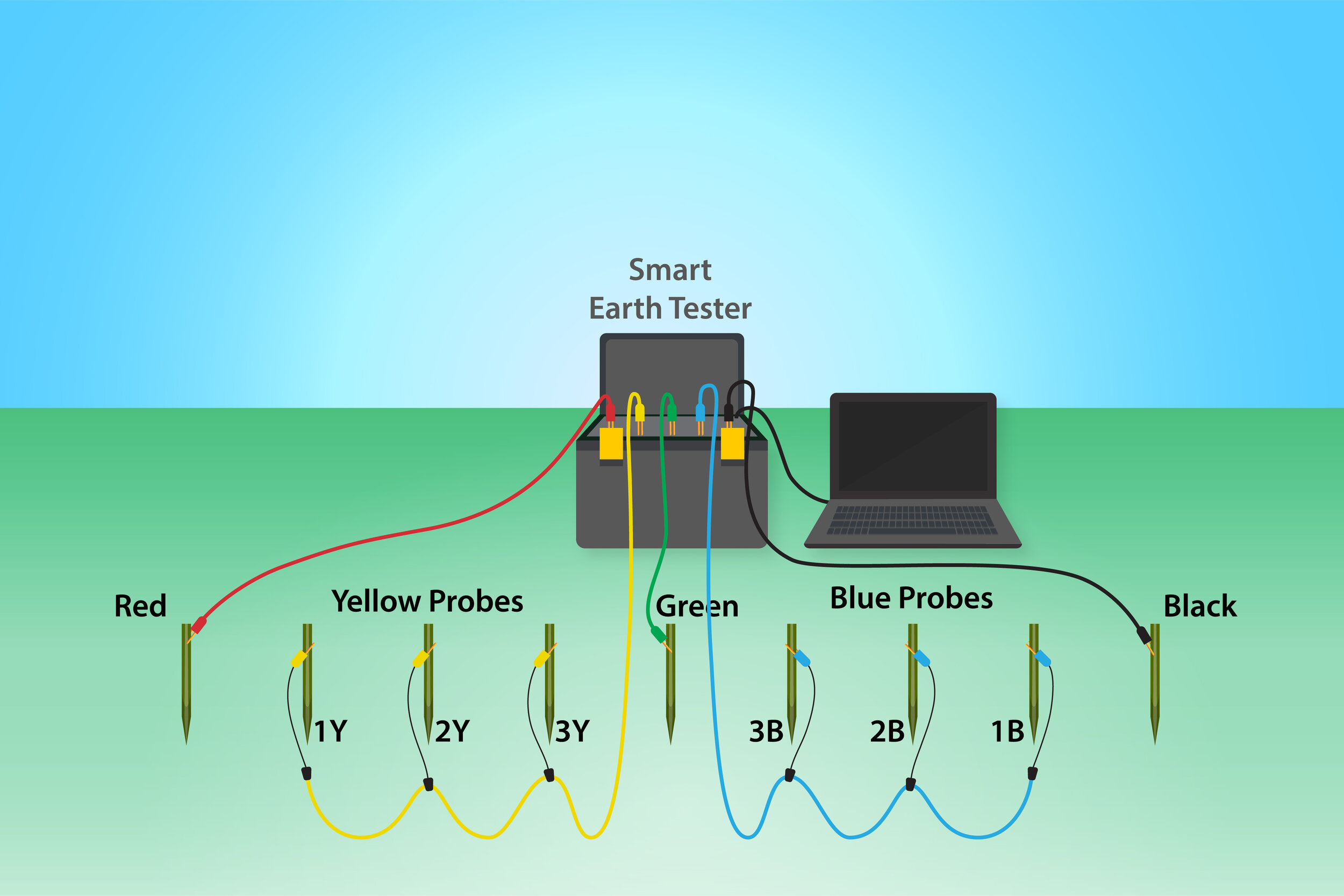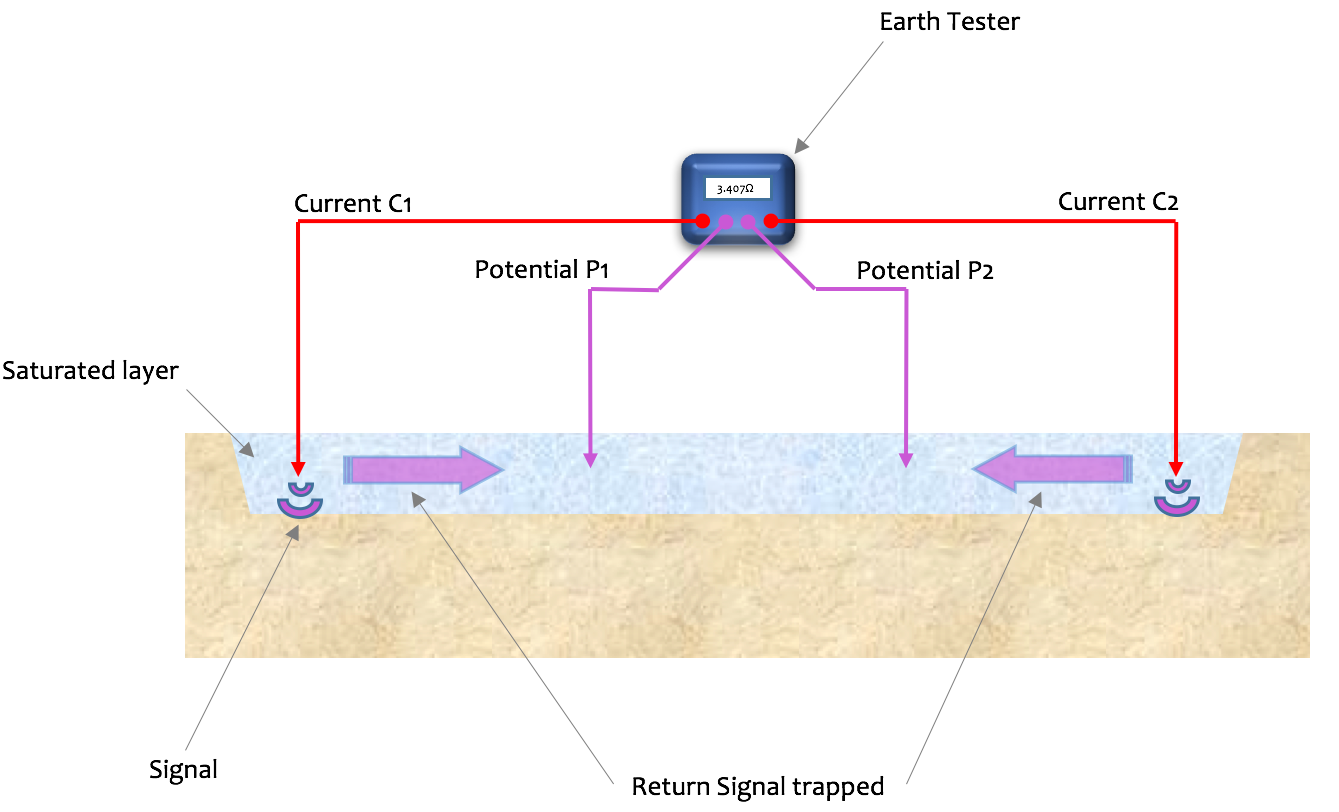
Soil Resistivity Testing
Soil Resistivity Testing is a fundamental process in geotechnical and electrical engineering that measures how much the soil resists the flow of electrical current. This measurement is crucial for designing effective grounding (earthing) systems, assessing corrosion risks for underground structures, and ensuring the safety and longevity of various infrastructures.
One of the most widely used methods for measuring soil resistivity is the Wenner Four-Pin Method. In this technique, four equally spaced electrodes are inserted into the ground in a straight line. An electrical current is introduced through the two outer electrodes, and the voltage is measured between the two inner electrodes. Using these readings, the soil's resistivity is calculated. This method is favored for its simplicity and effectiveness in providing accurate measurements of soil resistivity at various depths .
Understanding soil resistivity is vital for several reasons. In the context of grounding system design, soil resistivity determines how easily electrical currents can dissipate into the ground. Low-resistivity soils are ideal as they allow for efficient grounding, which is essential for the safety of electrical installations, especially in the event of faults or lightning strikes. Conversely, high-resistivity soils may require more extensive grounding systems to achieve the desired safety levels .

Additionally, soil resistivity testing plays a significant role in corrosion assessment for underground metal structures like pipelines and storage tanks. Soils with low resistivity often have higher moisture and salt content, which can accelerate the corrosion process. By identifying areas with such soil conditions, appropriate protective measures, such as cathodic protection systems, can be implemented to mitigate corrosion risks .
Furthermore, soil resistivity data is invaluable in geotechnical investigations. It aids in determining the suitability of a site for construction projects by providing insights into soil composition and properties. This information helps engineers design foundations and other structural elements that are safe and durable.

At Kinetic Span, we offer professional soil resistivity testing services that play a vital role in engineering and construction planning. This testing provides a detailed understanding of the soil’s electrical properties, which is essential for designing reliable and safe earthing (grounding) systems. Our assessments help ensure proper electrical safety in installations such as substations, transmission lines, and industrial facilities.
Additionally, our soil resistivity testing supports corrosion risk analysis for underground pipelines, storage tanks, and other buried metallic infrastructure. By identifying corrosive soil conditions early, we help prevent structural degradation and costly failures. This service also contributes to building secure and long-lasting foundations by offering valuable insights into subsurface conditions.
Through precise testing methods and technical expertise, Kinetic Span ensures that your infrastructure is both safe and sustainable from the ground up.
From Homes to Industries — Tailored Water Audit Solutions That Save Costs & Resources.
© 2025 Kinetic Span Pvt Ltd. All Rights Reserved.

